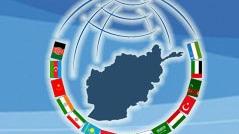KABUL - A high level meeting of regional countries that is set to begin Thursday in Kabul represents an opportunity for neighboring countries to shift their cooperation with Afghanistan from piecemeal acts of engagement into an effective route for regional development and security, according to a senior official with the United Nations Assistance Mission in Afghanistan (UNAMA).
The meeting, called the "Heart of Asia" Kabul Conference for Regional Cooperation, is the latest in a string of high level regional gatherings that fall under the rubric of the so-called Istanbul Process. That process began with a foreign ministers' level conference held in Turkey last November which came up with a collective non-binding vision for regional security, reconstruction and cooperation in the fight against terrorism and drug trafficking.
“I don’t think a lot of people thought this process would go beyond a declaration. But a number of meetings have shown that there is real regional ownership. It’s Afghan led, but these countries have a strong hand in the process,” said Nicholas Haysom, the Deputy Special Representative of the Secretary-General (Political) for UNAMA. “There is a sense that this could be one of the most effective routes to development and prosperity for Afghanistan and the region.”
The conference will gather ministers and senior government officials from 15 different countries, including Pakistan, Iran, Turkey and the Central Asian nations. Fifteen other countries, including the US, Britain, Germany and Japan will participate in the conference as supporting nations.
The United Nations will play a key role in this process. All the participating countries in the Istanbul Process are members of the UN and they agree that the working with the UN will give the process more authority. UNAMA has already chaired several sessions at previous gatherings.
In recent months the Istanbul Process has become a new forum for Afghanistan’s neighbors to play a greater role in ending insecurity in the region. Regional meetings have been held and 43 confidence building measures have been identified that could form the basis of increased economic ties and regional cooperation.
Work has already begun on seven of those confidence building measures, with the United Nations playing an important supporting role. Those areas are disaster management, counter-terrorism, counter-narcotics, chambers of commerce, commercial opportunities, education and regional infrastructure.
Another important conference related to stability in Afghanistan will be held in July in Tokyo. There donor countries will meet to agree on their civilian aid commitments beyond 2014, the year international forces are scheduled to cease combat operations.
“We would want UN funds and agencies involved in each of these seven areas in order to introduce international standards and so that there will be a UN contribution to each of these areas,” said Mr. Haysom. “Because this process is multilateral, because it’s regionally owned, because it works in the interests of all these countries, we have high hopes. Does that mean it will change Afghanistan overnight? No, it’s going to take time.”






